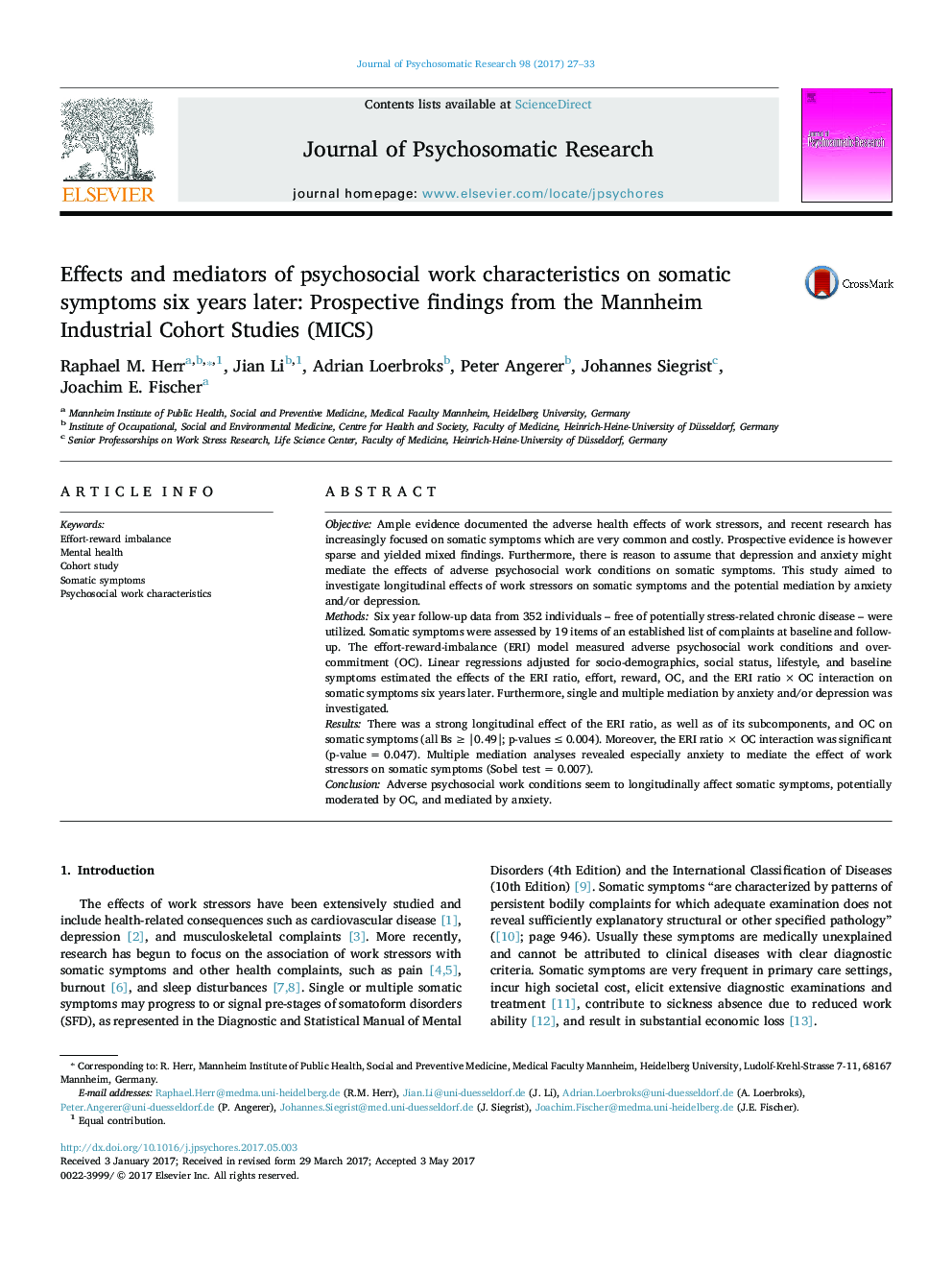| Article ID | Journal | Published Year | Pages | File Type |
|---|---|---|---|---|
| 5045937 | Journal of Psychosomatic Research | 2017 | 7 Pages |
â¢Work stressors might contribute to the development of somatic symptoms.â¢Effort-reward-imbalance model predicted somatic complaints six years later.â¢There was no indication of reversed or reciprocal causality.â¢The association appeared to be mediated by mental health, particularly by anxiety.
ObjectiveAmple evidence documented the adverse health effects of work stressors, and recent research has increasingly focused on somatic symptoms which are very common and costly. Prospective evidence is however sparse and yielded mixed findings. Furthermore, there is reason to assume that depression and anxiety might mediate the effects of adverse psychosocial work conditions on somatic symptoms. This study aimed to investigate longitudinal effects of work stressors on somatic symptoms and the potential mediation by anxiety and/or depression.MethodsSix year follow-up data from 352 individuals - free of potentially stress-related chronic disease - were utilized. Somatic symptoms were assessed by 19 items of an established list of complaints at baseline and follow-up. The effort-reward-imbalance (ERI) model measured adverse psychosocial work conditions and over-commitment (OC). Linear regressions adjusted for socio-demographics, social status, lifestyle, and baseline symptoms estimated the effects of the ERI ratio, effort, reward, OC, and the ERI ratio Ã OC interaction on somatic symptoms six years later. Furthermore, single and multiple mediation by anxiety and/or depression was investigated.ResultsThere was a strong longitudinal effect of the ERI ratio, as well as of its subcomponents, and OC on somatic symptoms (all Bs â¥Â | 0.49 |; p-values â¤Â 0.004). Moreover, the ERI ratio Ã OC interaction was significant (p-value = 0.047). Multiple mediation analyses revealed especially anxiety to mediate the effect of work stressors on somatic symptoms (Sobel test = 0.007).ConclusionAdverse psychosocial work conditions seem to longitudinally affect somatic symptoms, potentially moderated by OC, and mediated by anxiety.
